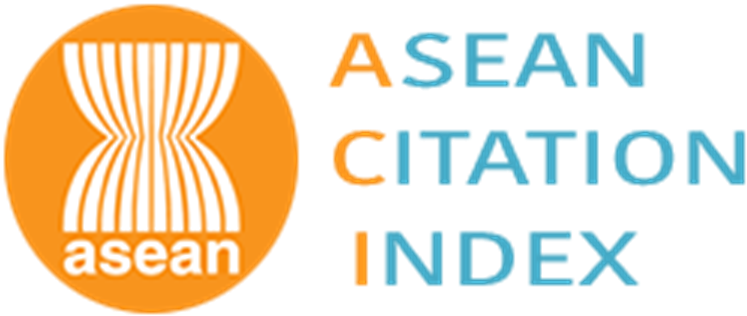แนวทางการพัฒนาทรัพยากรมนุษย์แบบโมโนซุคุริเพื่อรองรับไทยแลนด์ 4.0 ของวิสาหกิจขนาดกลางและขนาดย่อม
The Human Resource Development by Monozukuri Towards Thailand 4.0 of SMEs
Abstract
การวิจัยครั้งนี้มีวัตถุประสงค์ เพื่อศึกษาแนวทางการพัฒนาทรัพยากรมนุษย์แบบโมโนซุคุริเพื่อรองรับไทยแลนด์ 4.0 ของSMEs โดยใช้วิธีการตามระเบียบวิธีการวิจัยและพัฒนา กลุ่มตัวอย่างที่ใช้ในการวิจัย คือ ผู้ประกอบการวิสาหกิจขนาดกลางและขนาดย่อมของประเทศไทยที่จดทะเบียน จำนวน 400 คน เครื่องมือที่ใช้ในการวิจัย ได้แก่ แบบสอบถาม ผลการวิจัยสรุปได้ดังนี้ ขั้นตอนที่ 1 การสัมภาษณ์เชิงลึกเกี่ยวกับแนวทางการพัฒนาทรัพยากรมนุษย์แบบโมโนซุคุริเพื่อรองรับไทยแลนด์ 4.0 ของ SMEs จากกลุ่มเป้าหมายที่ 1 พบว่า สมรรถนะตามวิถีวัฒนธรรมการทำงานแบบญี่ปุ่นประกอบด้วย 21 ด้าน คือ 1) การปรับปรุงอย่างต่อเนื่อง 2) การสร้างบุคลากร 3) ทักษะ เทคโนโลยี และวิทยาการต่างๆ 4) คุณภาพสินค้าและบริการ5) ความคิดสร้างสรรค์ 6) ราคาและต้นทุน 7) ความพึงพอใจของลูกค้า 8) สร้างความสามารถในการแข่งขัน 9) การส่งมอบการกระจายสินค้า 10) ลดความสูญเปล่า 11) ประสบการณ์และองค์ความรู้ 12) สิ่งแวดล้อมและความปลอดภัย 13) ทัศนคติและจิตวิญญาณในการทำงาน 14) กระบวนการ หรือผลิตภัณฑ์ต้นแบบ 15) 2 ส. (สะสาง สะดวก) 16) ห่วงโซ่กระบวนการการผลิต 17) รอบเวลาการทำงาน 18) 7M 19) ประสิทธิภาพของเครื่องจักร 20) ทักษะทางด้านวิศวกรรม และ 21) ผู้ร่วมธุรกิจ ชุมชนและสังคม ความพร้อมในการรองรับธุรกิจอุตสาหกรรม 4.0 ของ SMEs ประกอบด้วย 6 ด้าน คือ 1) กลยุทธ์และการจัดองค์การ 2) โรงงานอัจฉริยะ 3) การดำเนินงานหรือการผลิตอัจฉริยะ 4) ผลิตภัณฑ์อัจฉริยะ 5) การบริการขับเคลื่อนข้อมูล และ 6) พนักงาน ขั้นตอนที่ 2 การสำรวจความคิดเห็นเกี่ยวกับการพัฒนาทรัพยากรมนุษย์แบบโมโนซุคุริเพื่อรองรับไทยแลนด์ 4.0 ของ SMEs พบว่า สภาพการณ์ปัจจุบันและความต้องการจำเป็นในการพัฒนาทรัพยากรมนุษย์แบบโมโนซุคุริของ SMEs ได้แก่ 1) การเสริมสร้างความรู้ ทักษะ ทัศนคติ ทางด้านวิศวกรรมให้พนักงานอย่างสม่ำเสมอ 2) การส่งเสริมการบริหารจัดการแบบ 7M ได้แก่ ทรัพยากรมนุษย์ งบประมาณ วัสดุ วิธีการ การตลาด เครื่องจักร และขวัญกำลังใจ 3) ส่งเสริมการให้ความรู้ด้านห่วงโซ่อุปทาน เช่น การส่งมอบ และการกระจายสินค้าให้มีประสิทธิภาพ 4) การพัฒนาบุคลากร ให้มีศักยภาพในการดำเนินงาน และ 5) การวางแผนรอบเวลาการทำงานของพนักงานได้อย่างเหมาะสมและเกิดคุณภาพสูงสุด ความสำเร็จของ SMEs ไทย ด้านกลยุทธ์และการจัดการเพื่อรองรับไทยแลนด์ 4.0 ได้แก่ “การวิเคราะห์การลงทุนเพื่อสร้างความพร้อมของบริษัทให้เข้าสู่อุตสาหกรรมในยุคไทยแลนด์ 4.0” ด้านโรงงานอัจฉริยะ ได้แก่ “การใช้ระบบเทคโนโลยีสารสนเทศช่วยในการดำเนินงานภายในโรงงาน” ด้านการดำเนินงานหรือการผลิตอัจฉริยะ ได้แก่ “การดำเนินงานโดยใช้เทคโนโลยีมาช่วยทำให้การดำเนินการขององค์กรสะดวกขึ้น เช่น การลดของเสีย ลดเวลา” และ “การสนับสนุนการนำระบบบูรณาการระหว่างเครื่องจักรกับเครื่องจักรมาใช้เพื่อสร้างความสามารถในการลดต้นทุนลงได้” ด้านผลิตภัณฑ์อัจฉริยะ ได้แก่ “การผลิตผลิตภัณฑ์ที่สามารถวิเคราะห์ข้อมูลของวงจรชีวิตของผลิตภัณฑ์ เช่น การใช้ QR Code” ด้านการบริการขับเคลื่อนข้อมูล ได้แก่ “การบริการขับเคลื่อนข้อมูล เพื่อเชื่อมโยงผลิตภัณฑ์ การผลิตหรือการบริการ และลูกค้าเข้าด้วยกัน” ด้านพนักงานได้แก่ “การกำหนดชุดทักษะพนักงาน ไว้ให้สอดคล้องกับนโยบายไทยแลนด์ 4.0” ขั้นตอนที่ 3 การจัดสัมมนากลุ่ม พบว่าการประเมินความคิดเห็นของผู้เชี่ยวชาญเกี่ยวกับการพัฒนาทรัพยากรมนุษย์แบบโมโนซุคุริเพื่อรองรับไทยแลนด์ 4.0 มีความสอดคล้องกันทุกรายการ กับผลการวิจัยจากขั้นตอนที่ 1 การสัมภาษณ์เชิงลึก และขั้นตอนที่ 2 การสำรวจความคิดเห็นเกี่ยวกับการพัฒนาทรัพยากรมนุษย์แบบโมโนซุคุริเพื่อรองรับไทยแลนด์ 4.0 ของ SMEs
This study aims to investigate the Monozukuri approach for human resource development to support Thailand 4.0 Economic Policy Model in Small and Medium Enterprises (SMEs) by using research and development methodology. The sample group used in the research comprised of 400 registered entrepreneurs from SMEs in Thailand. Research was conducted through surveys, in which the results could be summarized as follows: Step 1, the in-depth interview about the Monozukuri approach to human resource development to support Thailand 4.0 for SMEs from the target group 1 revealed that performance in terms of the Japanese work culture consisted of 21 factors: 1) Continuous Improvement (Kaizen); 2) Human Resource Development (Hitozukuri); 3) Skills in Technology and Various Sciences; 4) Quality of products and services; 5) Creative Thinking; 6) Price and cost; 7) Customer satisfaction; 8) Building competitiveness; 9) Delivery and distribution of products; 10) Reduction of waste (Muda); 11) Experience and knowledge; 12) Environment and safety; 13) Work attitude and spirit; 14) Prototype production or processing (prototype); 15) the 2Ss, sort and set in order; 16) Production process chain; 17) Operation cycle time (cycle time & time taken); 18) the 7 Ms; 19) Machine performance; 20) Engineering skills; and 21) Business partners, the community and society. Preparation to support the Industry 4.0 business for SMEs consisted of 6 aspects: 1) Strategy and organization management; 2) Smart factory; 3) Smart operations or manufacturing; 4) Smart products; 5) Data-driven services; and 6) Employees. Step 2, the opinion surveys about the Monozukuri approach to human resource development to support Thailand 4.0 for Small and Medium Enterprises found that the current situation and the needs for the Monozukuri approach in SME human resource development consisted namely of: 1) Regular strengthening of knowledge, skills and attitudes in the field of engineering for employees; 2) Promoting the management of the 7 Ms, namely man, money, materials, methods, marketing, machines and morals; 3) Promoting knowledge and practice in supply chains, such as that of effective delivery and distribution of products; 4) Human resource development (Hitozukuri) for quality in work operations and 5) Planning and time management (cycle time and time taken) in employees for suitability and maximum quality. The success of Thailand SMEs in terms of strategy and management to support Thailand 4.0 consisted mainly of analyzing investments to prepare the company to enter the Thailand 4.0 industry. For smart factories, this consisted namely of “The Use of Information Technology to assist in internal factory affairs”. For operations or intelligent manufacturing, this consisted namely of “Operations using intelligent assistance for increased convenience in the operations of the organization, such as waste and time reduction” and “Supporting the introduction of integrated machine-to-machine systems to reduce costs”. For smart products, this consisted namely of “Building products can assess product life cycle data, such as by using QR Codes”. In terms of data-driven services, this included data-driven services for “Services are data-driven for linking products, production or services and customers”. For employees, this consisted of “Employee skill sets are in accordance with the Thailand 4.0 policy”. Step 3, for focus group seminars, it was found that the evaluation of expert opinions on the Monozukuri approach to human resource development to support Thailand 4.0 were consistent with all items and results from step 1 (in-depth interviews) and step 2 (opinion surveys) for the Monozukuri approach to human resource development to support Thailand 4.0 for SMEs.
Keywords
DOI: 10.14416/j.kmutnb.2019.10.003
ISSN: 2985-2145





